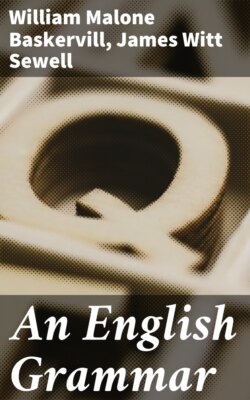Читать книгу An English Grammar - James Witt Sewell - Страница 19
На сайте Литреса книга снята с продажи.
III. Plurals formed by Adding -s or -es.
ОглавлениеTable of Contents
42. Instead of -s, the ending -es is added—
(1) If a word ends in a letter which cannot add -s and be pronounced. Such are box, cross, ditch, glass, lens, quartz, etc.
-Es added in certain cases.
If the word ends in a sound which cannot add -s, a new syllable is made; as, niche—niches, race—races, house—houses, prize—prizes, chaise—chaises, etc.
-Es is also added to a few words ending in -o, though this sound combines readily with -s, and does not make an extra syllable: cargo—cargoes, negro—negroes, hero—heroes, volcano—volcanoes, etc.
Usage differs somewhat in other words of this class, some adding -s, and some -es.
(2) If a word ends in -y preceded by a consonant (the y being then changed to i); e.g., fancies, allies, daisies, fairies.
Words in -ies.
Formerly, however, these words ended in -ie, and the real ending is therefore -s. Notice these from Chaucer (fourteenth century):—
Their old form.
The lilie on hir stalke grene. Of maladie the which he hadde endured.
And these from Spenser (sixteenth century):—
Be well aware, quoth then that ladie milde. At last fair Hesperus in highest skie Had spent his lampe.
(3) In the case of some words ending in -f or -fe, which have the plural in -ves: calf—calves, half—halves, knife—knives, shelf—shelves, etc.
